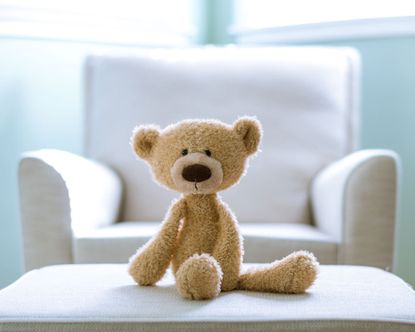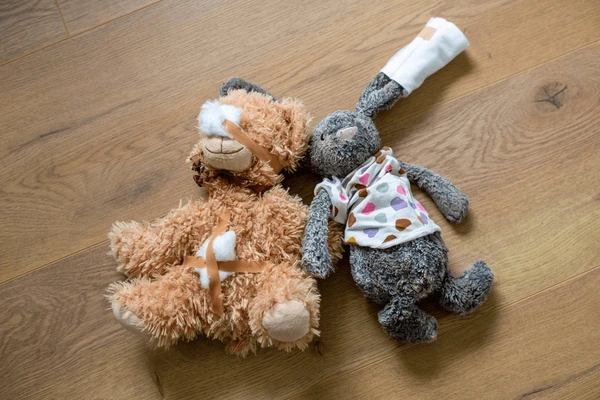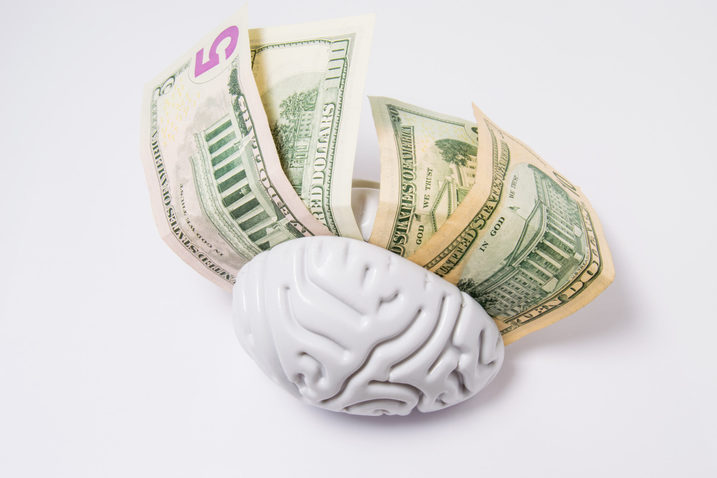[ad_1]
Are stuffed animals alive?
In this article, we delve into the intriguing question of whether Stuffed Animals Actually Alive. Many people have formed deep emotional connections with their plush companions, making them wonder if there’s more to these cuddly creatures than meets the eye. We explore various perspectives and insights to uncover the truth behind this whimsical theory.

Can stuffed animals think and feel?
While stuffed animals may not be able to think and feel the same way as living beings, they can evoke powerful emotions in humans. Many individuals find comfort in interacting with their plush friends, using them as sources of support and solace during times of stress or loneliness. In this sense, people’s emotional connection to their stuffed animals may give the illusion of a deeper level of sentience.
Studies have shown that interacting with stuffed animals can have a positive impact on mental health, helping individuals cope with anxiety, depression, and other emotional challenges. The act of cuddling a stuffed animal can release feel-good hormones such as oxytocin, promoting relaxation and reducing feelings of distress. Whether or not stuffed animals are truly alive, their presence can offer invaluable emotional support to those in need.
Do stuffed animals have souls?
The concept of a soul is deeply rooted in spiritual and religious beliefs, and whether or not stuffed animals possess souls is a matter of personal interpretation. Some may view their plush companions as imbued with a sense of spirituality or energy, attributing them with a soul-like quality that transcends their physical form. Others may see stuffed animals as inanimate objects, devoid of any spiritual essence.
Regardless of one’s beliefs, the emotional connection forged with a stuffed animal can be a deeply personal and meaningful experience. Whether it’s through play, comfort, or companionship, the bond between a person and their plush friend can bring joy, comfort, and a sense of connection that transcends the physical realm.
Are stuffed animals capable of communication?
While stuffed animals may not be able to communicate in the traditional sense, they can serve as powerful symbols of expression and support. Many individuals use their plush companions as outlets for self-expression, confiding in them, talking to them, or using them as sounding boards for their thoughts and feelings. In this way, stuffed animals can facilitate a form of non-verbal communication that is both comforting and cathartic.
Research has shown that engaging in imaginative play with stuffed animals can help children develop important social and emotional skills, such as empathy, creativity, and problem-solving. By interacting with their plush friends, kids can explore complex emotions and relationships in a safe and nurturing environment, fostering a sense of self-awareness and emotional intelligence.
Can stuffed animals come to life at night?
The idea of stuffed animals coming to life at night has captured the imagination of many people, inspired by popular stories, movies, and folklore. While it’s unlikely that stuffed animals come alive when we’re not looking, the notion can be a charming and enchanting way to view our beloved plush companions. The sense of magic and wonder that this concept evokes can add a touch of whimsy to our lives.
Whether it’s through bedtime stories, imaginative play, or simply the power of our imaginations, the idea of stuffed animals coming to life at night can offer a sense of comfort and joy. By believing in the possibility of magic and wonder, we can tap into our inner child and embrace the enchanting world of possibilities that our plush friends represent.
Can stuffed animals help with mental health?
Yes, stuffed animals can play a valuable role in supporting mental health and well-being. Many individuals find comfort, solace, and companionship in their plush friends, using them as sources of emotional support during difficult times. The act of cuddling a stuffed animal can release feel-good hormones, promote relaxation, and reduce feelings of anxiety and stress.
For children, stuffed animals can serve as important tools for emotional regulation and development. By engaging in imaginative play with their plush companions, kids can explore complex emotions, build empathy, and enhance their social skills. Stuffed animals can also provide a sense of security and familiarity, helping children navigate challenging situations and transitions.

Conclusion
While the notion of stuffed animals being alive may remain a whimsical and fantastical idea, the emotional connection people form with their plush companions is very real. Whether it’s through comfort, companionship, or creative play, stuffed animals can have a profound impact on mental health and well-being. By embracing the magic and wonder that these cuddly creatures represent, we can find solace, joy, and support amid life’s challenges.
FAQs
1. Can stuffed animals feel emotions?
While stuffed animals may not feel emotions in the same way as living beings, they can evoke powerful emotional responses in humans. Many people form deep connections with their plush companions, finding comfort, solace, and companionship in their presence.
2. Do stuffed animals have physical bodies?
Stuffed animals have physical bodies made of fabric, stuffing, and other materials. While they may not possess biological systems like living beings, their physical form can provide comfort, support, and a sense of familiarity to those who interact with them.
3. Are stuffed animals sentient beings?
Stuffed animals are not sentient beings in the traditional sense, as they do not possess consciousness or the ability to think and feel independently. However, the emotional connection people form with their plush friends can give the illusion of sentience, fostering a sense of connection and companionship.
4. Can stuffed animals communicate with humans?
Stuffed animals cannot communicate in the same way as living beings, but they can serve as powerful symbols of expression and support. Many individuals use their plush companions as outlets for self-expression, confiding in them, talking to them, or using them as sources of comfort in times of need.
5. How can stuffed animals help with mental health?
Stuffed animals can provide emotional support, comfort, and companionship to individuals experiencing mental health challenges. The act of cuddling a stuffed animal can release feel-good hormones, promote relaxation, and reduce feelings of anxiety and stress. For children, stuffed animals can aid in emotional regulation, social development, and creative play.
[ad_2]







